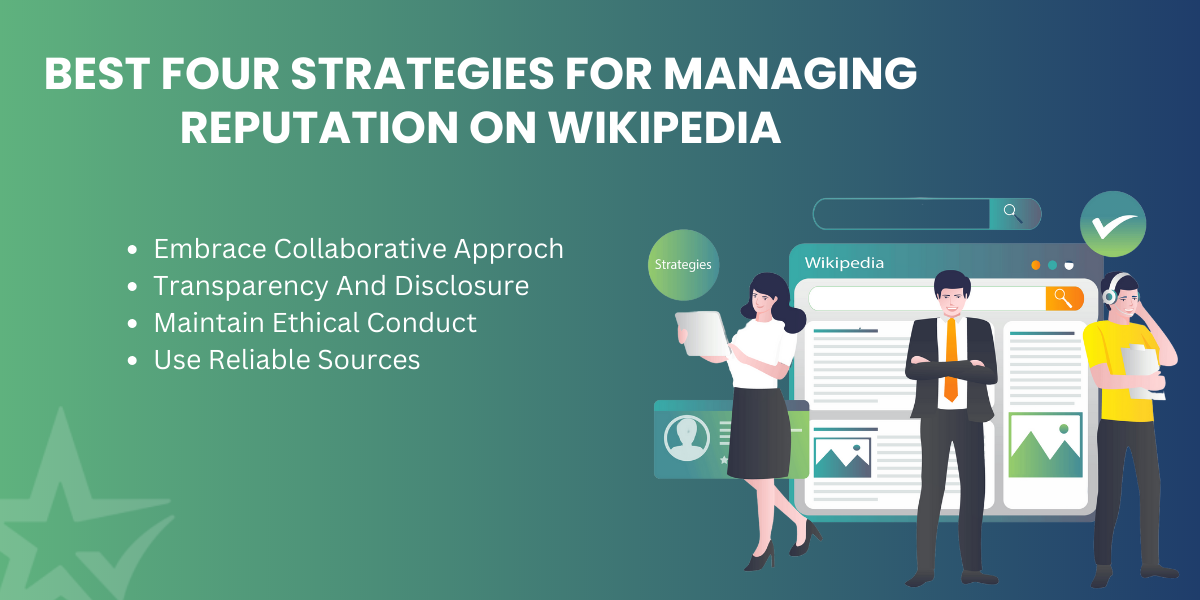Wikipedia plays a significant role in businesses, individuals, or brands’ online reputation management. It become one of the best sources of information worldwide. Most users prefer Wikipedia as a reliable source of information. It has 6.4 million articles and 1.7 billion unique visitors per month. Hiring a reputation manager can help create a credible Wikipedia page that showcases your expertise. In this article, we’ll explore the ins and outs of Wikipedia reputation management, including how it works, its rules, and how you can effectively Manage your Reputation on the site.
Table of Contents
What Is Wikipedia And How It Works?
Wikipedia is a free online encyclopedia allowing users to access and contribute vast amounts of information. It provides in-depth guidance on several different topics in almost 300 different languages. It’s different from other sources because it doesn’t offer content solely but provides content based on mutual understanding between different writers.
To ensure that content is accurate, it has set different rules and policies that every editor must follow. Some of these rules and policies are:
- The neutrality of Tone: Articles must be written objectively, presenting information fairly, impartially, and without personal bias.
- Notability: The topic must be well-known and significant enough for its article.
- Data only from prior research: The content shouldn’t be based on the editor’s beliefs or original research but on previously published works.
- Authenticity: Every piece of information needs to be supported by credible sources. Thus, the content has a solid foundation.
What Is The Role Of Reputation Management On Wikipedia?
The role of reputation management on Wikipedia has strong roots in any business’s growth and success. Many individuals and companies use Wikipedia to boost their online credibility. Many organizations and individuals believe that Wikipedia must have positive content to rank on the first pages of Google. People love to read articles from this site because it has research-based content. There are other ways to reach the front pages, but Wikipedia’s reputation management can help.
Your reputation and the information about you personally are linked. As the Wikipedia editing guide explains, volunteer editors write articles to ensure that information is correct and up-to-date. They are regularly updated. So, news about your reputation will show up there. You can rank your business higher on Google with the help of high-tech tools.
You may be interested in reading: What is Franchise Advertising
Why Is Personal Reputation Crucial on Wikipedia?
Reputation management on Wikipedia is crucial because it affects how others perceive you, builds your professional credibility, raises your online visibility, gives you control over information, and gives you agency over the story being told about you. With so much riding on your Wikipedia reputation, you must keep it in good shape.
Best Four Strategies For Managing Reputation On Wikipedia
The Wikipedia site publishes valuable information, and that’s why it contains more domain authority than Google and ranks articles on top. However, if an article about you on Wikipedia is based on false, defamatory, or out-of-date information, it can damage your reputation. So, here I mentioned the four strategies for your to manage your reputation on such sites:
- Embrace Collaborative Approch
Engage in open discussions with other editors and embrace a collaborative approach. Respond to feedback, address concerns, and work together to maintain the accuracy and quality of articles.
- Transparency And Disclosure
When editing articles about yourself or your business, disclose any conflicts of interest. So that no further disclosures become a stain on your reputation, this builds trust and ethics.
- Maintain Ethical Conduct
You must follow ethical guidelines when you edit articles. Avoid using statements that hurt your reputation. It’s the best principle and helps you gain credibility, trust, and confidence and enhance your online presence.
- Use Reliable Sources
Provide evidence to support your claims by citing credible sources. Include citations for these sources wherever you make changes to the article to provide information that can be verified and to boost the credibility of your contributions.
Also Read: Hotel Reputation Management Guide
Do’s And Don’t On Wikipedia
Follow these Do’s and Don’t rules on Wikipedia so that you can build a strong reputation online.
- Do: You should regularly monitor your Wikipedia page so that you can edit any biased or inaccurate information.
- Do: Collaborate with others in discussions so that you can address your concerns about content and also for visibility and creativity.
- Don’t: Make sure to edit your Wikipedia page directly by yourself. Don’t try to communicate with its community to edit the page.
- Don’t: Engage in edit wars or revert other editors’ changes without proper discussion and consensus.
FAQs
What is the relationship between Wikipedia and Google?
Wikipedia articles often appear in Google’s search results due to Wikipedia’s high domain authority and the trust Google places in its content.
Can negative articles damage one’s reputation?
Negative articles on Wikipedia can harm one’s reputation, but actively managing and addressing the content can help mitigate the impact.
What if someone adds outdated and defamatory content to Wikipedia?
If outdated or defamatory content is added to Wikipedia, individuals can engage with the Wikipedia community, provide reliable sources, request edits, or remove the content.
Final Verdicts
The role of Wikipedia’s reputation management in Reputation Repair for today’s digital era can’t be underestimated. Due to its high visibility and influence, it plays a crucial role in shaping how businesses and individuals are perceived online. Remember, in the vast landscape of the internet, managing your reputation on Wikipedia is a strategic step towards building a positive and impactful digital presence.



